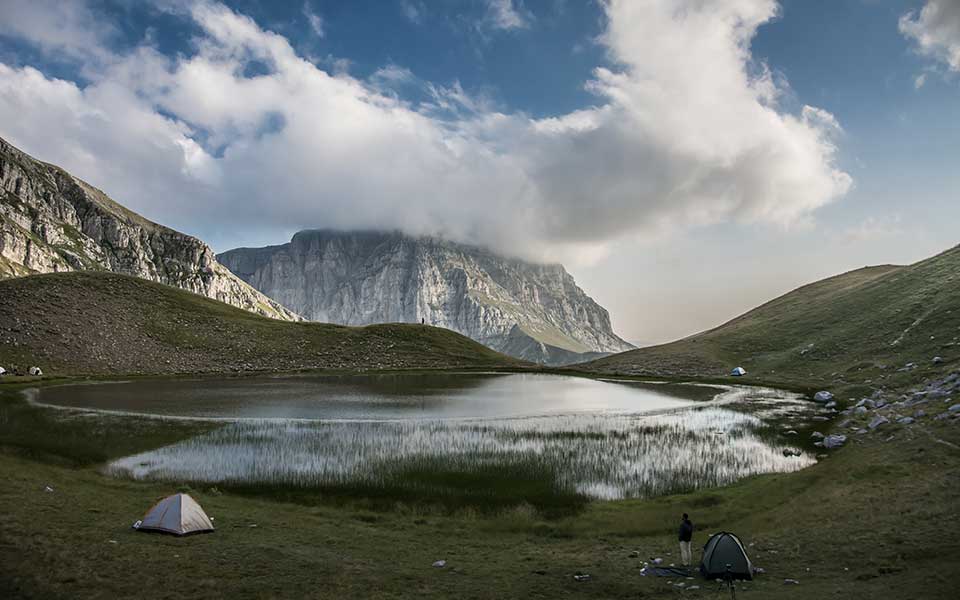Greece, a country with more than 1,200 protected areas and one of the richest in biodiversity in Europe, offers us the opportunity to walk along trails of unique beauty, through forests and mountains with welcoming shelters, alongside lakes and rivers, and through deserted villages and world heritage sites. Even though not all trails are marked or well-maintained, there are countless discernible routes on both the mainland and the islands that are ideal for day hikes and excursions to picturesque villages, Byzantine churches, stone bridges, springs, and watermills.
These hikes require no special equipment; all you need are a pair of lightweight hiking shoes, comfortable clothing that does not retain sweat, and at least 1 to 1.5 liters of water. The rest is self-explanatory: check the weather forecast before venturing out, don’t walk alone if you’re inexperienced, stay on the trails, and don’t leave any trash behind. It is our responsibility to preserve this heritage by keeping the trails that lead us to the country’s hidden treasures alive and clean.
Hiking in nature relieves stress, is good for the heart, and rewards us with breathtaking scenery that we rarely see while driving on the highway. We’ve chosen five unique trails ranging in length from 3 to 12 kilometers in mountainous Arcadia and Epirus, as well as on the islands of Kithira, Chios, and Andros. These routes allow us to combine hiking with trips that bring us closer to the country’s natural and cultural richness.
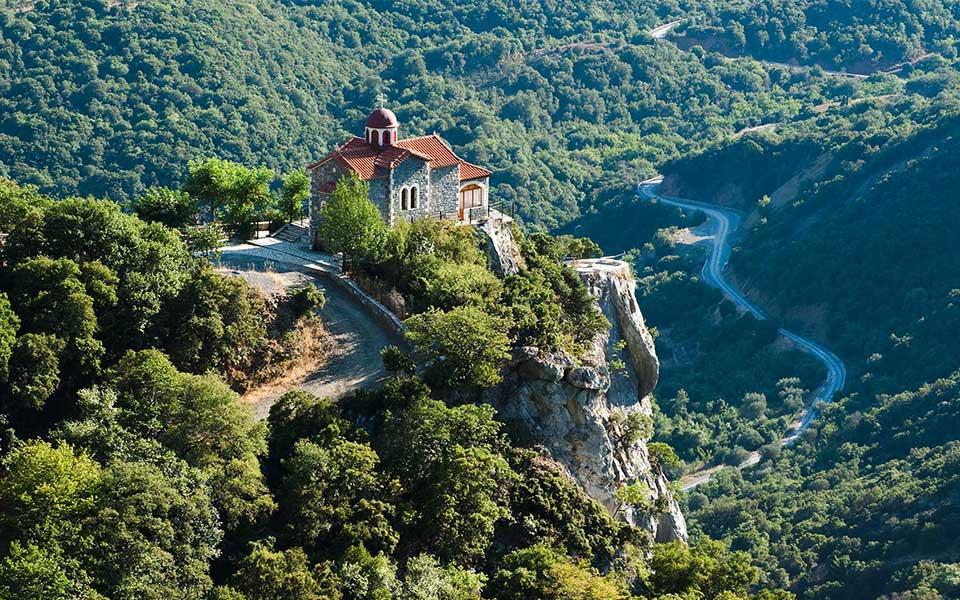
© Shutterstock
1. Stemnitsa – Lousios River Gorge – Dimitsana: 5 hours
One of the few Greek trails certified by the European Ramblers Association, the Menalon Trail is a 75-kilometer route that crosses the gorge of the Lousios River and the Gortynia mountains in the mountainous Arcadia region. This exceptionally beautiful and culturally rich trail, which connects nine historic settlements in Gortynia, is divided into eight smaller sections.
You can take the approximately 12-kilometer route that connects the popular Arcadia destinations of Stemnitsa and Dimitsana. It’s a moderately difficult 5-hour hike that begins in Stemnitsa, the lush silversmiths’ village. The trail passes through the historic Zoodochos Pigi Monastery, the Lousios River gorge (named after the Maenalides Nymphs who bathed Zeus as a child), the Prodromos monasteries, and the Old and New Filosofou Monasteries. The route ends at the watermills and gunpowder mills that made Dimitsana famous throughout Greece.
For more information, visit menalontrail.eu
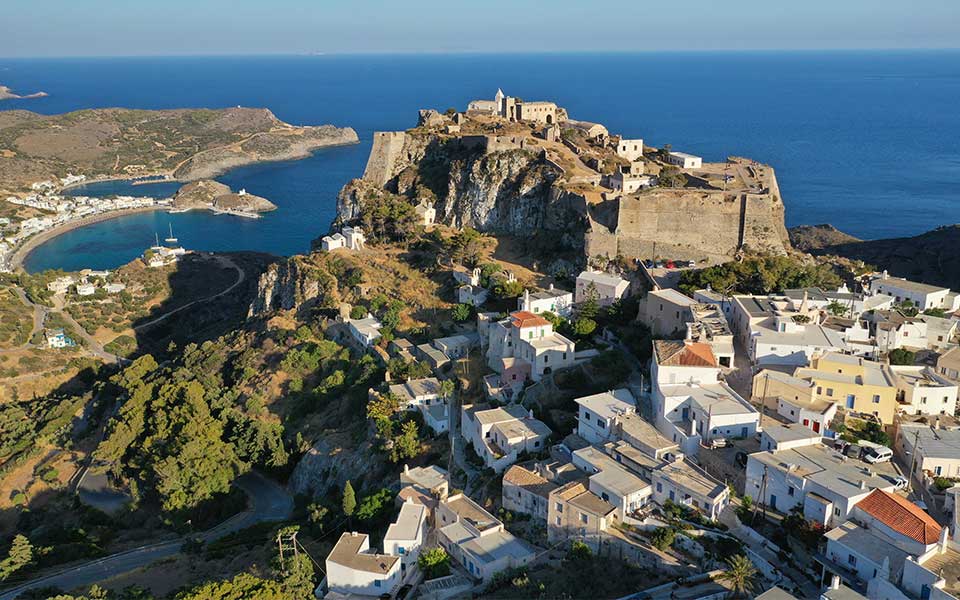
© Shutterstock
2. Kythira: Mylopotamos – Kato Hora – Mylopotamos: 2.5 hours
Another impressive trail, though at a lower elevation, is the one that crosses the Mylopotamos gorge in Kythira. It’s a relatively easy 4.8-kilometer circular route through plane trees, waterfalls, watermills, and chapels that will make you forget you’re on an island.
This mostly paved trail passes by the Fonissa waterfall, the Filippos Mill (the only one of the 23 mills in the area that has been renovated and is still operational), the stone bridges on the slope of the watermills, and the Aghia Ekaterini chapel, before ending at the Venetian Castle of Kato Hora. It is one of the most beautiful trails of the island and, along with the rest of the trails of Kythera, the first in Greece to be certified with the international “Green Flag Trails” label of the non-profit organization World Trails Network.
For more information and maps, visit kytheratrails.gr
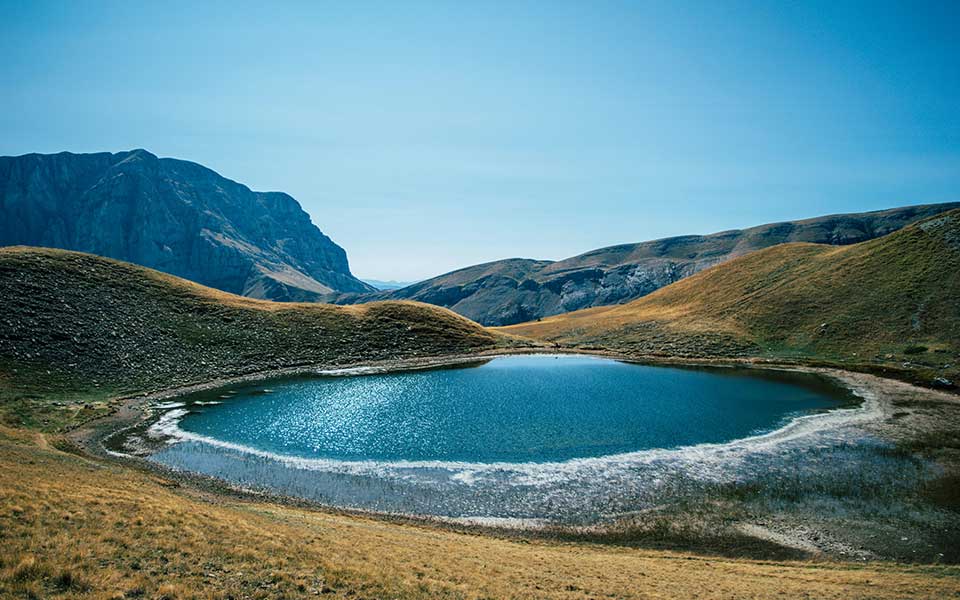
© Unsplash
3. Papigo – Drakolimni: 4.5 hours
Mikro Papigo, located in the Vovousa Valley to the northwest of Ioannina, is one of the most beautiful villages in the Zagori region. It is located at an altitude of 950 meters on the slopes of Mount Tymfi and is part of the Natura 2000 Network within the Vikos-Aoos National Park. From here, you can start the 8.5-kilometer trail towards Drakolimni of Tymfi or towards Gamila, one of Greece’s largest and most famous alpine lakes.
The trail starts in a lush green landscape overlooking the rocky Towers of Astraka and goes uphill towards the shelter that bears the same name. It then passes by the small lake of Xeroloutsa, situated at 1,750 meters on the Laka Tsoumani plateau, before ascending to 2,050 meters to reach the legendary Drakolimni. The surrounding landscape is bare, but the view of the surrounding mountains is impressive.
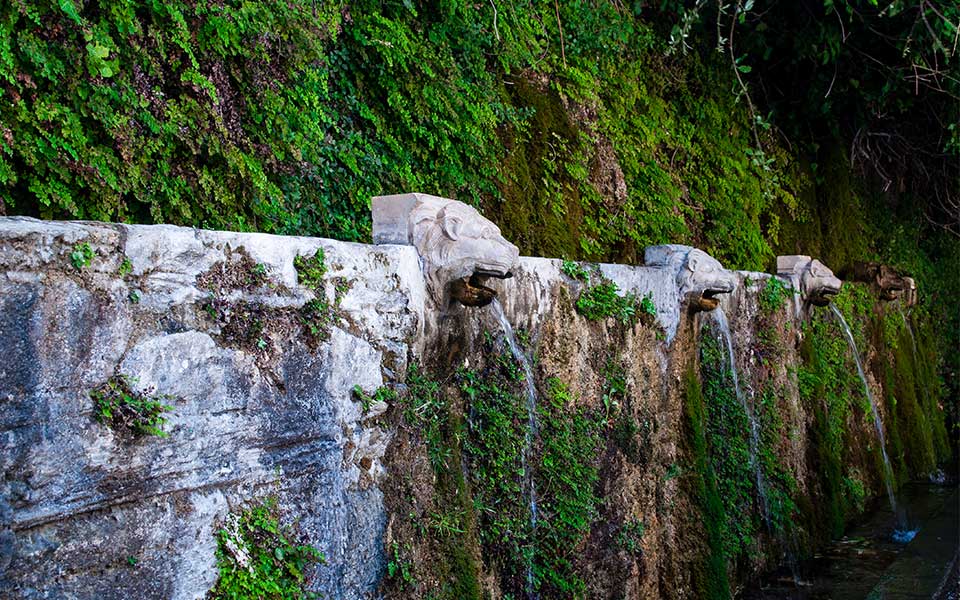
© Shutterstock
4. Andros: Menites Circular Route: 1 hour and 15 minutes
Andros is a lush Cycladic Island with a remarkable and extensive network of trails spanning over 300 kilometers. For centuries, these paths connected the ports with the various villages and places of worship on the island. Today, many of Andros’ trails have been certified by the European Ramblers Association and have gained recognition thanks to the efforts of the Andros Routes volunteer group.
One of these trails runs through the fertile valley of Menites, in the greenest part of the island, right in the center of Andros. It’s a lovely circular route through plane trees, walnut trees, and running water. You will start at the impressive marble Lion Fountain and pass by the church of Panagia Koumoulou, the Towers in the valley, and the ruins of a watermill in the gorge. The trail is 3 kilometers long and not particularly difficult, as long as you are careful not to slip in the narrow section that runs parallel to the Koumoulou stream on the stretch from Menites to Messaria.
For more information, visit androsroutes.gr
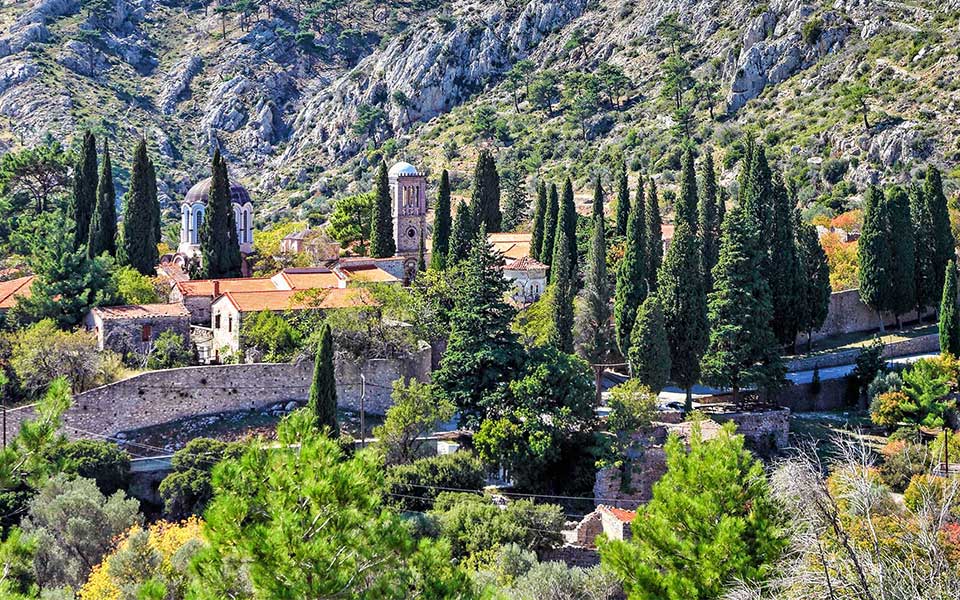
© Shutterstock
5. Chios: Aghia Moni – Aghioi Pateres – Aghia Moni: 2 hours
While the island of Chios is better known for its Mastichochoria villages in the south, the island’s mountainous northern part has a particularly wild beauty not found on many other islands. The trails of Mount Pelineo, one of the highest mountains in the Aegean at 1,297 meters, Oros Summit, Amani, and “Homer’s Path,” in the so-called Plateau of Mount Aipos, stand out.
A little further south, in the center of the island, there is a trail worth exploring for its geophysical and cultural wealth. It’s the path that connects the New Monastery, which has been designated a UNESCO World Heritage Site for its unique mosaics, to the Cave of the Holy Fathers (Aghioi Pateres). This 5.7-kilometer circular route follows the stone-built monk’s path, providing an excellent view of the town of Chios, the coast of Asia Minor, and the valley of the New Monastery, a landscape of exceptional natural beauty.
For more information, visit chioshiking.gr

